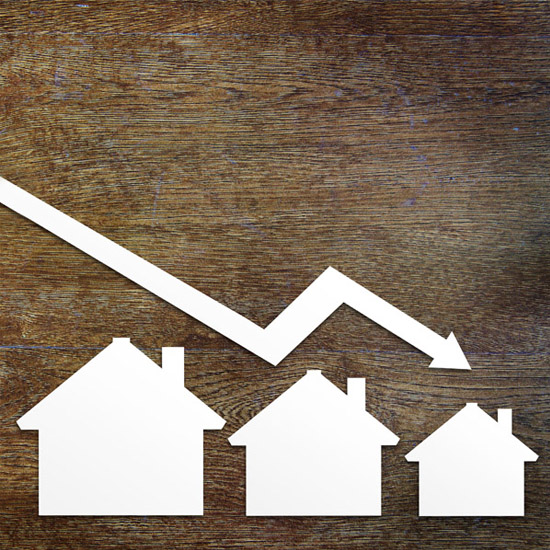Need help or have a question? Call 877-672-4543
Mortgage 101: A Beginner’s Guide
Buying a home is a big milestone. If you’re considering getting a mortgage home loan to fund your dream home, congratulations! You are on the road to homeownership.
While buying a house may seem like a complicated process, it can be easier to understand if you have a general idea of the basics involved.
So whether you’re a first-time homebuyer or plunging back into the market after being settled for a while, you’ll find our easy-to-follow Mortgage 101 guide packed with information about mortgage home loan types, interest rates, payment options, and more.
What is a Mortgage Home Loan?
A mortgage home loan is a binding, legal agreement between a lending institution (typically a bank) and a borrower in which money is lent from the lender to the homeowner for the purchase of a property. The loan is secured by the property and the borrower makes payments per agreed-upon terms until the lender is paid in full for the outstanding balance, including interest.
In other words, a mortgage is a loan meant to help people purchase or build a house. There are different types of mortgages, but basically, you receive a lump sum of money to cover the cost of the house (not including the down payment) and are then required to make regular payments until the house is paid off.
What are Fixed-Rate and Adjustable-Rate Mortgage Home Loans?
There are many different types of mortgage home loans, but fixed-rate and adjustable-rate home loans are the most popular. A fixed-rate mortgage has a set interest rate that doesn’t change. An adjustable-rate mortgage’s interest rate changes at set intervals (such as one year, three years, and so on). This is why understanding these terms and what they mean is so important. What you pay each month may change according to the terms of your contract.

Overview
Benefits
Drawbacks
More On Fixed-Rate vs. Adjustable-Rate Mortgage Home Loans
Mercer Savings Bank’s own Trever Bransteter, Senior Vice President of Mortgage Lending, offers further clarification on the benefits and drawbacks of each type of mortgage home loan:
“With fixed-interest rate mortgages, you never have to worry about your payment changing,” he says. “Adjustable rates can change—that’s the drawback. The positive is that ARMs are easier to qualify for because we as a bank make the decision using our criteria versus a set of written guidelines that can’t be changed. There’s a bit more wiggle room than with fixed-rate mortgages.”
“For example, for a fixed-rate loan you might have to have four specific credit traits. Even if you have three out of four, you still won’t qualify. Or, if you need a credit score of 680 and you have a 678, you won’t qualify. It’s that specific. But in-house, we could look at that 678, or even a 660, and take that into account with other positive factors, and you could still qualify for an adjustable-rate mortgage.”

Which mortgage rate type is best for me?
When choosing the right type of mortgage home loan for you, it comes down to personal preference and your financial situation. If you’re on a tight budget, a fixed-rate mortgage is by far your best bet because you don’t have to worry about the payment changing. If you do not have great credit, then a fixed rate might not be for you, but an ARM may still get you into the home you desire.
How can you predict what mortgage rates will do?
No one can really predict what the housing market will do from year to year or decade to decade. There are too many factors that affect this. There are numerous complicated variables that have an effect on mortgage rates—things like supply and demand, tax codes, the Federal Reserve Board, and more—so it’s difficult to say with certainty whether mortgage rates will rise or fall in any given year.
So, the best time to get a mortgage home loan is when you are ready to: personally, professionally, and financially.

Read More Articles for First-Time Homebuyers

What Type of Mortgage Home Loan is Right for Me?
When determining which mortgage home loan is right for you, it’s a good idea to have a firm budget in mind to determine how much you’ll be able to spend on a down payment and monthly mortgage payments.
To get a general idea of a manageable mortgage amount, some people like to use a mortgage to salary ratio. According to Investopedia, “most prospective homeowners can afford to finance a property that costs between 2 and 2.5 times their gross income.” So, let’s say someone makes $50,000 a year. If you go solely off of the mortgage to salary ratio, that person could afford a mortgage of about $100,000 to $125,000.
However, it’s important to keep in mind that the ratio amount isn’t the final answer. No matter what number you end up with, you still want to make sure it will fit your budget.
It’s also a good idea to talk to the lending representative at your bank, such as our Mortgage Specialists here at Mercer Savings Bank. They can review your financial information and personal situation and give advice as to what kind of mortgage best suits your needs and financial situation
What determines my mortgage eligibility?
There are a few different factors that lending institutions take into account when determining your eligibility for a loan. Those include (but are not limited to):
- Credit score
- Debt to income ratio
- Loan to value ratio (loan amount versus the value of the property)
- Savings history
Can I still get a mortgage if I don’t have a full-time job?
Your employment status can affect your eligibility in certain situations. For example, it would skew the debt to income ratio (see above) if you didn’t have a job or any other source of income. But a full-time job is by no means a requirement of a mortgage.
Full-time hours will naturally be easier to qualify for a loan than part-time, but it can be done. For example, people that work seasonally can still often qualify as long as their seasonal income meets certain requirements for the loan.
Mortgage Calculator
If you’re wondering what you can afford, try our Mortgage Calculator. It helps you calculate how large of a home mortgage loan you can afford based on your yearly income, monthly debts, and down payment amount.
Which Home Mortgage Loan Lender Should I Choose?
When choosing a mortgage lender, it’s a good idea to start locally. Begin by looking at community banks to see what rates they offer. You can also research online to get an idea of average rates. However, it’s best to work with local lenders, as they are more likely to understand your area’s housing market and make an effort to examine your mortgage eligibility based on your unique personal circumstances. You won’t simply be another number!
If you go to a local bank, it’s also more likely that the representatives will be able to offer more personalized advice than an online lender. Even if you are a new client at the bank, they’ll take the time to get to know you so they can answer your questions, suggest alternatives, and help find the perfect loan for you.

The Advantages of Going to Your Local Bank for a Mortgage
Simply put, at local banks like Mercer Savings Bank, customers are treated as unique individuals. Local banks look at the whole picture—not just the credit score. They are more likely to take extra time to look at other factors that would qualify an applicant for a mortgage.
Some other advantages of a local bank include:
- They know the local real estate values in your area.
- They offer competitive rates.
- They typically work and live in the community and can answer any questions you may have.
- They are generally more willing to work with customers who have less than perfect credit scores.
- They’re much easier to get into contact with versus an online lender.

What to Expect When Applying for a Mortgage Home Loan
When you’re ready to apply for a mortgage, it's important to keep in mind that it typically takes 3-4 weeks to close on that loan. This means it could be about a month before you will be able to pay for and get into your new home. This timeline can vary depending on how quickly an appraisal on the house is completed, but that’s generally the time frame you can expect between applying for the mortgage and having everything all set for purchase.
Some people have questions about when to seek a mortgage—before or after you have a house picked out. Some people choose to visit their bank first to see what they can afford before house hunting, while others already have a house in mind but need to determine if they qualify for a mortgage. It’s up to your personal preference, although it might be safer to see what you qualify for and can afford before getting too attached to a house!
One important thing to note: the maximum loan amount you qualify for at the bank doesn’t necessarily take into account your other budget items like cell phone, utilities, student loans, etc. That’s why it’s important to create your own budget with a mortgage payment in mind to see what loan amount is feasible for the lifestyle you want to have.
What to Bring to Your First Meeting with a Bank Representative
Your local bank representative will let you know if you need any other documents during the loan process, but for your first meeting it’s a good idea to bring the following:
- Most recent check stub
- Last two years of W-2s
- Most recent bank statement
Did you know you can apply for a mortgage home loan with Mercer Savings Bank in as little as 20 minutes?








